 |
||||||||||||||||||||||||||||||||||||||||||||||||||||||||||||||||||||||||||||||||||||||||||||||||||||||||||||||||||||||||||||||||||||||||||||||||||||||||||||||||||||||||||||||||||||||||||||||||||||||||||||||||||||||||||||||||||||||||||||||||||||||||||||||||||||||||||||||||||||||
 |
Follow NECE at twitter and linkedIn. The NECE Conference hashtag is #NECE2014. |
|||||
| NECE NEWS | ||||||
 |
NECE Conference 2014
16-18 October 2014, Vienna (Austria) |
|||||
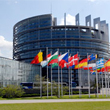 |
NECE New Year's Reception
28 January 2014, Brussels (Belgium) |
|||||
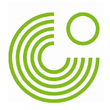 |
Civic Education Conference in Egypt: from recommendations to actions
From 8-11 December 2013, the Goethe-Institute Cairo, together with the Tahrir Lounge gathered an audience committed to the cause of civic education in the historical premises of Bibliotheca Alexandrina. In partnership with the Hanns Seidel Foundation, the German Federal Agency for Civic Education and the Center for Democracy and Social Peace Studies, the conference developed a set of 57 recommendations
|
|||||
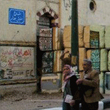 |
Focus Group “Exchange between Europe and North Africa”
The group members gathered on 11 December 2013 in Alexandria (Egypt) in a follow-up meeting to the Civic Education Conference (CEC 2013). The event began with an exchange on recent developments, including the introduction of the transformation partnership project “Leading Change Across the Mediterranean”, a cooperative programme involving Germany, Egypt and Tunisia. “The project’s publication – entitled ‘Training Manual for Community Leadership in Transformation Countries’ – is a further milestone”, explained project manager Susanne Ulrich. Subsequent discussions at the meeting targeted questions of experiences from NECE exchanges. Participants from both Europe and North Africa said they felt that the previous exchange had been interesting and stimulating for their own work. In discussions on citizenship education, they particularly enjoyed the meetings’ different perspectives and contributions, which were “enormously enriching” for their own work. Many also mentioned how exciting it was to discover that even though participants came from different backgrounds, they were able to identify plenty of common issues and topics at this level of political education. A major final conclusion was that this lead to changes in mutual perception, as well as to questions that are worth pursuing together. A number of networking and exchange projects were also proposed at the meeting, and the group intensely discussed the question of how to bring NGOs and CSOs in the region together in order to form a network association similar to NECE. Networking and the planned publication will continue to be the core topics at future events.
|
|||||
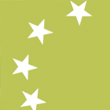 |
Focus Group “Hard-to-reach learners and youth”
The Focus Group met again at the NECE Conference in The Hague in November 2013. Information on the project’s current status and the first results of the initial meetings can be found on our website on Hard-to-reach learners and youth. A working programme is about to kick off, and more information on this and the Focus Group’s next meeting in July 2014 will be available soon.
|
|||||
| EURO-MED COOPERATIONS | ||||||
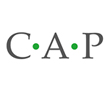 |
Transformation Project ‘Leading Change Across the Mediterranean’
With support from the Institute for Foreign Cultural Relations (IFA) zivik programme and in collaboration with the John D. Gerhart Center for Philanthropy and Civic Engagement at the American University in Cairo and the Arab Institute for Human Rights in Tunis, the Center for Applied Policy Research at the University of Munich has launched a set of programmes aimed at promoting and networking young leaders with representatives from civil society, political parties, media, the private sector and academia in both the Arab transformation countries and Europe. Two parts of the programme on offer are the ‘Young Leaders Forum (YLF)’ – a dialogue and workshop programme that aims to bring together emerging leaders from Arab transformation countries and Europe – and the 'Workshop for Community Leaders', which has been developed in a highly participatory style. The “Training Manual for Community Leadership in Transformation Countries” will evaluate the programme’s outcomes.
|
|||||
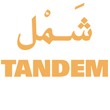 |
TANDEM/SHAML Cultural Managers Exchange Europe – Arab Region (Partnership Forum)
The project offers eight cultural organisations based in Germany and other European countries (including Turkey) a unique opportunity to establish long-term cooperation links with partner organisations from the Arab countries across the Mediterranean. An exchange and knowledge development programme, Tandem/Shaml allows culture professionals from many different disciplines to acquire the skills they need to engage in long-term cooperation across borders. The Tandem process provides hands-on possibilities for gaining real insights into a newly emerging Arab cultural scene, but also for gaining practical experience in collaboration in a field that is changing rapidly across Europe.
|
|||||
| GOOD PRACTICE: IDEAS & EXAMPLES | ||||||
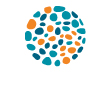 |
Civic Space “Be the Change“
The “Be the Change” platform seeks to connect people from across the world, through the sharing of stories, skills and lessons learnt. It invites you to share stories of campaigns from across the world and become part of a growing global movement for positive social change.
The "Be The Change" website is the first part of a two part campaign which includes an online platform and a global day of citizen action. The idea of 'civic space' is integral to the campaign and can be more easily understood as the freedom to speak out (freedom of expression), to organise (freedom of association) and to take action (freedom of assembly).
The first global day of citizen action will be in June this year. The platform will allow people to share their activities for this day of action and work together to organise, speak out, and take action within their communities to claim their civic space.
|
|||||
| POLITICS & POLICIES & CITIZENSHIP EDUCATION | ||||||
|
Strategic Options for Europe’s Future: Executive Summary
The first report of the New Pact for Europe project reflects the work and discussions of a Reflection Group that includes EU experts from different Member States, analyses the 'state of the Union', describes the key challenges Europe faces and presents five potential strategic options for the future of European integration. To help generate ideas for future action, the report will be discussed between December 2013 and April 2014 by citizens, politicians, policymakers and key stakeholders in about 50 events taking place in many EU countries. |
||||||
|
It's about Us, It's about Europe Towards Democratic European Citizenship!
A total of 62 European networks of associations and NGOs backed up by 22 coalitions at the national level have joined forces to form the European Year of Citizens Alliance 2013 (EYCA). One of the main goals of this broad cross-sectoral and transnational network is to ensure that active citizenship is understood as an ongoing theme that touches on all of Europe’s public policy debates. After a year-long reflection and consultation process, the EYCA is now presenting its key proposals for the reinforcement and enhancement of active citizenship in Europe. |
||||||
|
"Making the Case for European Civic Education" Georg Pirker reports on the DARE talking points at the EP roundtable on 4 December 2013
DARE saw the European Year of Citizens Alliance 2013 (EYCA) as an opportunity to get the issue of citizenship education back on the European agenda. The DARE network views creating an integrated and connected understanding of a number of educational fields as formative for European citizenship, and continues to ask for a European programme to support training in this field to promote interconnected and cascading effects in Europe’s democratic societies. From the perspective of DARE, the EYC therefore represents a missed opportunity for the EU, which passed up a chance to meet these urgent needs by formulating an adequate future funding programme. |
||||||
|
HRE 2020 – Global Coalition for Human Rights Education
Human Rights Education Associates (HREA), Amnesty International, Soka Gakkai International and nine other organisations have launched “Human Rights Education 2020” – a global coalition of civil society organisations that aims to promote human rights education by supporting and strengthening the implementation of existing international standards and commitments. HRE 2020 will seek to ensure a systematic monitoring of governments’ implementation of human rights education provisions in international human rights instruments, including the UN Declaration on Human Rights Education and Training and the World Programme for Human Rights Education. |
||||||
|
Empowering people through non-formal and informal learning
SOLIDAR has launched the new briefing paper “Empowering people through non-formal and informal learning”, which defines a practical approach to Building Learning Societies. The paper highlights how non-formal and informal learning in a community-based setting is an active step towards meeting the challenges our societies face today – and empowers people to fully participate in society in a democratic, social, economic and cultural way in order to find new pathways for the future. |
||||||
|
Publication of the most recent data on education budgets in Europe
Investment in education is a priority area in the Europe 2020 strategy. The lack of recent information on public investment in education in Europe, however, makes it difficult to monitor and discuss this topic, to pinpoint the factors behind changes to educational investments, or to analyse recent reforms undertaken by countries within their respective budgetary frameworks. Eurydice has therefore produced the National Sheets on Education Budgets in Europe 2013, which provide the most recent data on planned education expenditure in Europe. |
||||||
|
Europe for Citizens Programme: Primary Topics for 2014
This programme sets out annual topics of focus to supplement its list of established priorities. In 2014, Funding Area 1 topics include raising European historical consciousness on the centenary of the start of hostilities in the First World War, the 25th anniversary of the fall of the Berlin Wall, and the 10th anniversary of the EU’s expansion into countries in central and eastern Europe. In Funding Area 2, which focuses on democratic commitment and citizen participation, the topics are the 2014 European parliamentary elections and participation in democratic life in the EU. |
||||||
| CALLS | ||||||
|
Call for papers by EU-CoE Youth Partnership: Perspectives on Youth – European Youth Partnership Series
The group of publishers and editorial team supported by the EU-CoE youth partnership has now published the call for papers for the third issue of its new annual series on youth policy, research and practice, “Perspectives on Youth: European Youth Partnership Series” in English, French and German. The new issue will focus on the theme “Love and hate in contemporary Europe: how ‘healthy’ is the present and future for young people?”
Submission deadline is 2 March 2014.
|
||||||
|
Call for Papers: Revolution and Memories (JSSE 2014 - 4)
This JSSE-issue celebrates the 40th anniversary of the Portuguese “carnation revolution”, but also expands beyond this event and deals with the relationship between Memories and Revolution, as well as political change in various continents and historical periods. The editors welcome papers from a variety of disciplines and fields (education, history, political science, sociology, psychology etc.) from countries both within and beyond Europe’s borders. Papers that address how memories of the past are integrated into citizenship education for younger generations are also relevant.
Deadline for first submissions is 15 April 2014.
|
||||||
|
Call for Participants: The South East Europe Summer Academy “Human Rights in Action”
The Summer Academy taking place from 20-28 June 2014 in Cetinje (Montenegro) is based on a whole-school approach to EDC/HRE and addresses different spheres of school life, among them teacher competence, learning and teaching activities, democratic school governance and partnership with the local community. This approach encourages the active participation of all stakeholders in school life to build an environment where the principles of human rights and democracy can be learned and practiced.
Application deadline is 28 February 2014.
|
||||||
|
Journalist Academy on Civic Involvement
The two-year EU youth project “Team Up” is aimed at encouraging societal and civic commitment in young people, as well as their competence in media-related activities. The first seminar within the framework of the “Journalist Academy on Civic Involvement” is slated to take place in Münster’s Bennohaus venue in April 2014. 16 participants from Germany and the EU are invited to take part in the eight-day event beginning on 31 March. The seminar is aimed at under-30s who work, study or volunteer in the fields of media and journalism. Application deadline is 1 March 2014. |
||||||
| EVENTS | ||||||
|
Expert Forum Europe 2014
24-25 February 2014, Berlin (Germany) |
||||||
|
Right turn for Europe? Right-wing populism, extremism, and the European elections
17-18 March 2014, Cologne (Germany) |
||||||
|
Berlin Conference “A Soul for Europe”
3 March 2014, Berlin (Germany) |
||||||
|
Citizenship Days 2014 - Europe Yesterday | Today | Tomorrow
23 April to 9 May 2014 |
||||||
|
Europe 14I14 - HistoryCampus Berlin
7-11 May 2014, Berlin (Germany) |
||||||
|
You can find more current publications on citizenship education in Europe at the NECE website. |
||||||